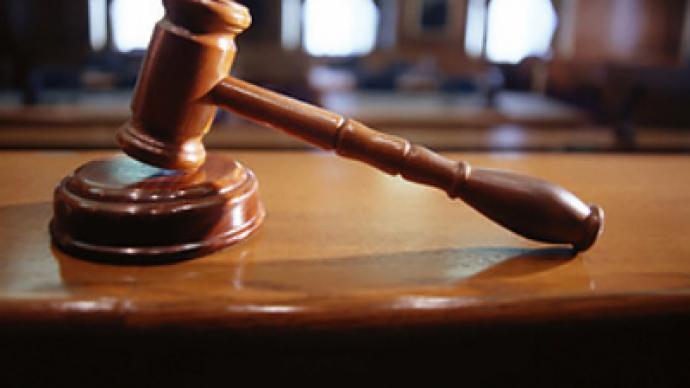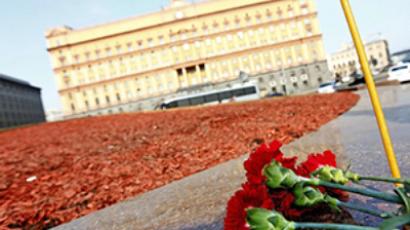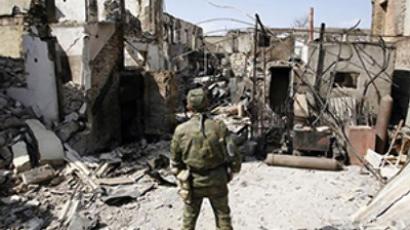Moscow disputes UN Court’s right to consider Georgian lawsuit

Russia has dismissed Georgia’s accusations of “ethnic cleansing” of Georgians in South Ossetia and Abkhazia as trumped-up and urged the UN highest court to throw the case out as it falls out of its jurisdiction.
On Monday, the UN’s International Court of Justice (ICJ) in The Hague has begun public hearings into the case launched by Georgia against Russia following the August 2008 war.
According to the ICJ’s press release, the hearings this week “will concern solely the preliminary objections to jurisdiction raised by the Russian Federation” back in December 2009, rather than to the Georgian lawsuit against its neighbor.
Speaking at The Hague, Roman Kolodkin, Russia’s Ambassador to the Netherlands, stated that “The International Court, as the highest UN court, should not be illegitimately used as a political arena”.
Addressing the court, Kolodkin said that Russia, being a multinational state, supports the convention, but believes it cannot be applied to the events in South Ossetia, writes Itar-Tass. The diplomat stressed that the accusations over the violations of the treaty are not within the jurisdiction of the ICJ. He also noted that Tbilisi ignored the convention requirement and did not seek to resolve its claims through negotiations before appealing to the court, but pushed them straight through.
Moscow insists that Tbilisi only raised claims of discrimination after it failed to regain control over South Ossetia by using military force in 2008."The application (to the court) was launched only when it became clear that Georgia's military operation had failed," said Kirill Gevorgian, head of the Russian Foreign Ministry's legal department, cites the Associated Press agency.
Later on Monday, in an interview with Itar-Tass, the official also noted that it is absolutely clear that there are political motives behind Georgia’s appeal to the ICJ. Tbilisi’s tried “to portray itself as a victim.”
“There are no legal grounds behind [the application]. That is what we are proving,” Gevorgian said.
Georgia initiated proceedings against Russia before the UN Court on August 12, 2008, claiming breaches of the 1965 International Convention on the Elimination of all forms of Racial Discrimination.
“Our claim is about the ethnic cleansing in Georgia carried out by Russia from 1990 until now. We hope that the court will understand our arguments,” Deputy Head of the Georgian Foreign Ministry, Nino Kalandadze said, as quoted by The Messenger Online.
Georgia’s deputy justice minister, Tina Burjaliani – who represents Georgia at the court – said earlier that Tbilisi has “strong evidence” that proves that Russia is responsible for “ethnic cleansing and the discrimination against Georgian population” and for preventing refugees from returning to their homes, wrote NewsGeorgia website.
Tbilisi filed its case just several days after the five-day war, which started after Tbilisi launched an attack on the South Ossetian capital of Tskhinval on August 8, 2008. Russia sent in troops to protect the republic’s citizens, many of whom were Russian passport holders. Within five days, the Georgian troops had been pushed out and shortly after that, Russia recognized the independence of South Ossetia and Abkhazia. Tbilisi, however, still considers the countries to be part of its sovereign territory.
During the four-day hearings, both sides of the argument will be given a chance to challenge the objections of the opponent. Russia will voice its position on September 13 and 15, and Georgia on September 14 and 17.
Citing Russia’s Foreign Ministry, RIA Novosti agency writes that the Georgian lawsuit aims to distract the public's attention from Georgia's own gross violation of international law that occurred when it started the war.
Now there are three possible scenarios, writes Itar-Tass citing a source at The Hague court. “The court will agree with Russia's arguments and will terminate the merit proceedings; the court will not agree with them and the merit proceedings will be resumed; the court will rule to continue the proceedings, but with due account of the preliminary objections Russia filed,” the source said.
Natalia Makarova, RT














